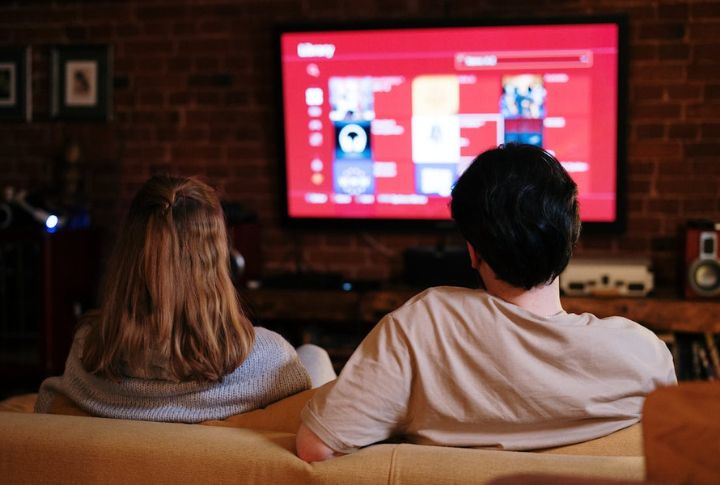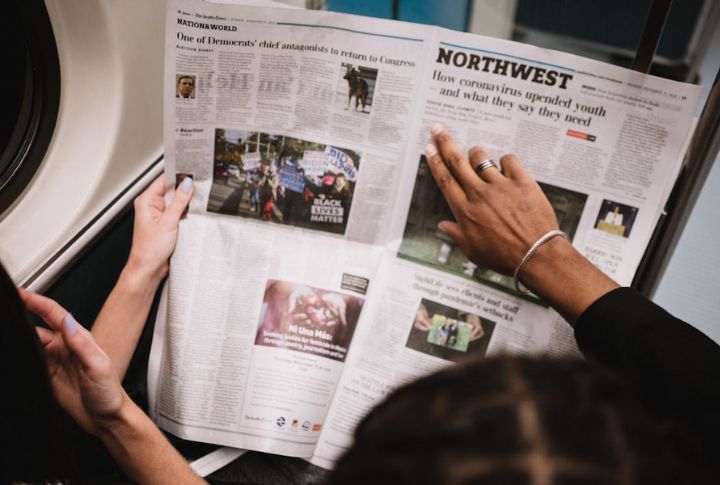
Sometimes you speak without thinking and notice a shift in the room. No one reacts openly, but you sense an impression has formed. Your words often suggest more about you than you planned. Small remarks (even ordinary ones) can make others pause. So, let’s point to 20 things that prompt others to judge you under the surface.
“I Don’t Read Books”

People judge “I Don’t Read Books” as intellectual laziness. Reading develops empathy and opens minds to new ideas. Completely avoiding books suggests you’re missing valuable opportunities for personal growth and a deeper understanding of human experiences.
“I’m Always Late”

Although saying “I’m always late” might sound casual, it rarely lands that way. People take it as a sign of carelessness with their time. In Brazil, it might not cause a stir, yet in Germany, it can raise eyebrows. Wherever you are, time unawareness shapes silent judgments.
“I Never Watch Movies”

When someone says, “I never watch movies,” it can raise eyebrows. Films often act as conversation starters and cultural markers. Opting out entirely might unintentionally signal detachment from everyday social connections that others naturally rely on.
“I Don’t Exercise”

You might think avoiding exercise is a personal choice, yet others usually see more in it. Laziness and weak willpower are common assumptions. Besides that, exercise is about longevity as much as image. Regular activity not only supports health but also shapes how others view you positively.
“I Don’t Like Music”

Music seems impossible to escape, woven into nearly every part of life. As a result, not responding to it challenges expectations. Though the reality may simply be a neurological variation, such as musical anhedonia, others may still interpret it as a lack of empathy or depth.
“I Don’t Care About Politics”

Politics shapes everyday life, from laws to opportunities, so a lack of engagement draws quiet criticism. What feels like calm disinterest to you may look like irresponsibility to others. Even though many admit to steering clear of such conversations, silence usually brings sharper reactions than open disagreement.
“I Don’t Like Animals”

In a country where most households share life with a pet, saying you dislike animals raises eyebrows. It’s quickly taken as a lack of empathy or warmth. Pet owners themselves are generally judged more trustworthy. In dating, especially, this admission can act as an unspoken red flag.
“I Don’t Drink Coffee”

It’s no accident that conversations usually begin with “let’s grab a coffee.” For 66% of Americans, it’s part of the daily routine, according to the National Coffee Association. Not drinking it can separate you from a common bond. Globally, the beverage holds power too.
“I Never Travel”

This phrase sounds limiting to many people. They assume you lack curiosity or adventure. Travel opens minds and creates lasting memories, so rejecting even weekend getaways can seem like you’re missing out on personal growth and life’s richer experiences.
“I Don’t Like Kids”

Cultural narratives place children at the center of innocence and future promise. So rejecting them can feel like rejecting those values, too. Now, with childfree lifestyles gaining acceptance, openly admitting dislike sparks discomfort. In workplaces, it may influence how empathetic or approachable you’re perceived to be.
“I Don’t Believe In Science”

When disbelief in science is voiced, it tends to jar listeners. After all, science underpins the basics of modern existence, from communication to healthcare. Even when skepticism stems from distrust of institutions, dismissing science entirely makes others question your reasoning and judgment.
“I Hate Reading News”

For most people, following the news is routine. The Pew Research Center reported 86% of U.S. adults say they get news from a digital device. So when you admit to avoiding it, the reaction isn’t always kind. Socially, silence often gets mistaken for apathy or a lack of awareness.
“I Don’t Like Laughter”

Across cultures, laughter is as universal as language. It strengthens relationships while also boosting health. People laugh far more in company—about 30 times more—showing its role as social glue. Dislike of it runs against the current, and people judge it as emotional distance or a rigid outlook.
“I Don’t Believe In Luck”

Luck divides opinion. To some, disbelief reflects rational thinking; to others, it feels like a lack of imagination. However, most people admit it touches their lives in small ways. Even without proof, belief itself holds power; it boosts confidence and encourages you to take leaps you might otherwise avoid.
“I Don’t Like Celebrations”

This mindset sounds like you’re pushing people away. Birthdays, weddings, and other milestones create stronger social ties. When you consistently avoid these gatherings, people assume you don’t value the relationships and community connections that celebrations help maintain.
“I Don’t Like Food”

For many, food is the highlight of daily life. Saying you dislike it flips expectations. The response isn’t curiosity but concern about health or emotional state. Genetics may explain your preferences, but the stigma persists. Strangely, people judge disliking food more harshly than being merely picky.
“I Don’t Care About Money”

When someone claims not to care about money, it’s read as irresponsible. Because money secures safety and planning, any dismissal of it can feel naive. Financial literacy plays a key role in well-being, and many quietly mistrust those who treat money as less important than it is.
“I Don’t Believe In Love”

Love stands at the center of human connection. Rejecting it often draws quiet judgment, as others may interpret disbelief as emotional detachment or past hurt. Nonbelievers can seem distant or untrustworthy, leaving people unsure how to connect with them in relationships.
“I Hate My Job”

Think about how much time is spent at work. When someone declares hatred for their job, it instantly colors how others see them. Even when the dissatisfaction is true, speaking about it too often feels pessimistic. Eventually, others may interpret your words as a lack of ambition rather than genuine hardship.
“I Don’t Care About Fashion”

Your clothes speak before words. In most eyes, neglect of fashion suggests carelessness. Attire affects judgments of intelligence and professionalism, whether you intend it or not. The way you reject trends and refuse to care about appearance often makes people question your sense of awareness and connection.

